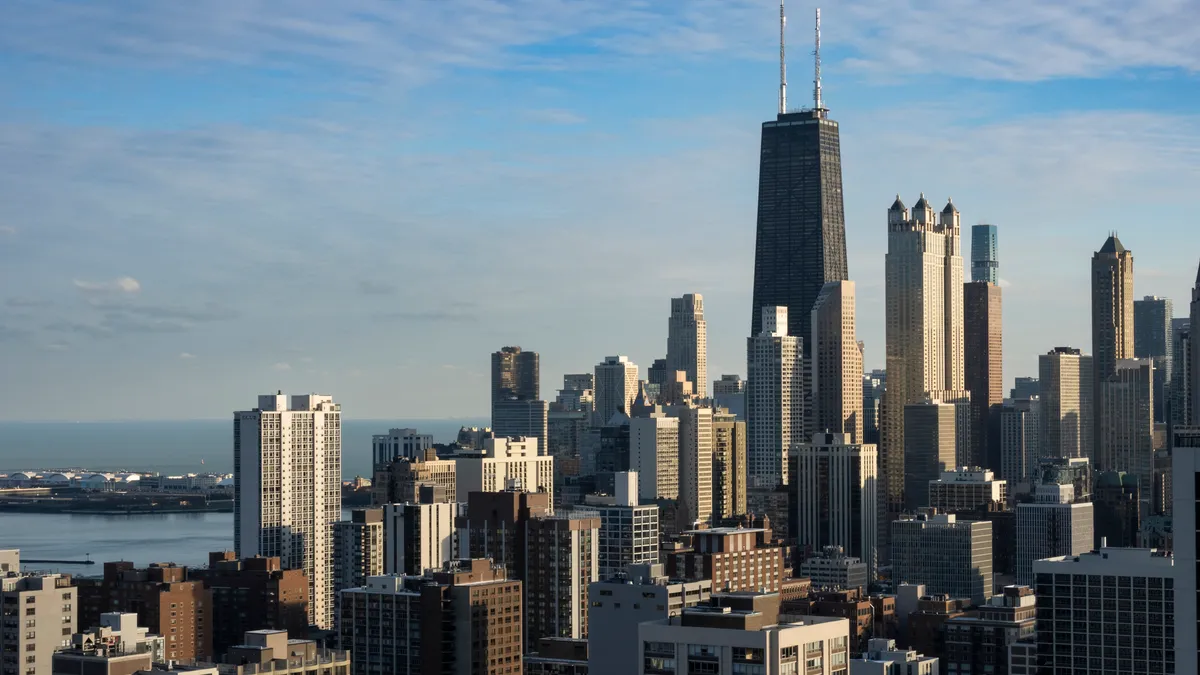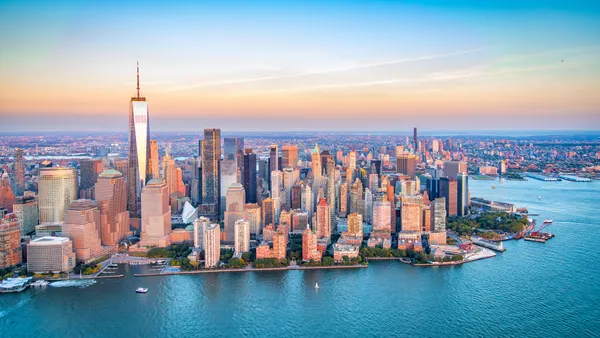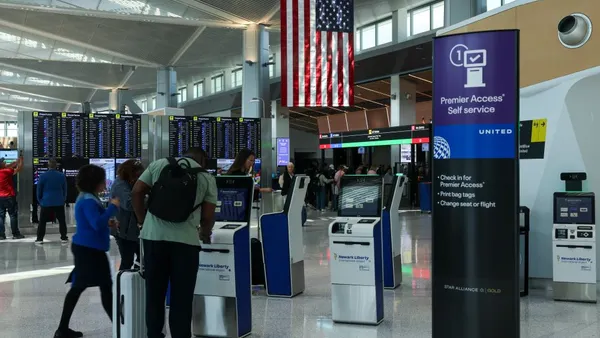Dive Brief:
- Global hotel rates are expected to remain relatively stable through 2026, despite geopolitical instability and economic uncertainty resulting from recent U.S. government actions, according to a report by American Express Global Business Travel, published last week.
- Chicago is predicted to see the highest year-over-year hotel rate increase in 2026 (4.2%), compared to other U.S. cities analyzed in the Amex GBT report. New York City, Las Vegas, Washington, D.C., and several other top U.S. markets are expected to see hotel rate growth next year as well.
- However, concerns over domestic tariff policy shifts and other geopolitical issues could limit hotel demand and restrict price increases, according to Amex GBT. The report comes after several hotel companies lowered growth outlooks for 2025 and 2026 in second-quarter earnings, citing economic worries.
Dive Insight:
Amex GBT projects New York City and San Francisco will see 4% year-over-year increases in hotel rates in 2026, while prices in Las Vegas, Miami and Washington, D.C., will each rise 3%. Atlanta (2.9%) and Nashville, Tennessee (3.6%) are also expected to see increased rates.
Amex GBT expects U.S. “price rises to be moderate, tempered by a projected downturn in inbound demand,” according to the report. As of May, the U.S. was on track to lose $12.5 billion in international visitor spending in 2025, the World Travel & Tourism Council reported.
Canada, meanwhile, “could see larger price increases than its southern neighbors,” despite a growing supply of hotel rooms, the report detailed. Amex GBT forecasts that hotel rates in Toronto could rise by as much as 5.8% year over year in 2026.
During Q2 earnings, Las Vegas hotel CEOs noted a lack of Canadian tourism to the market in the second quarter of 2025. Hotel companies industrywide, meanwhile, reported declines in U.S. RevPAR in the quarter, leading several to lower growth guidance for the full year.
CoStar and Tourism Economics also downgraded their U.S. growth forecast for 2025 and 2026 earlier this month, with leaders citing unrelenting uncertainty and inflation.












